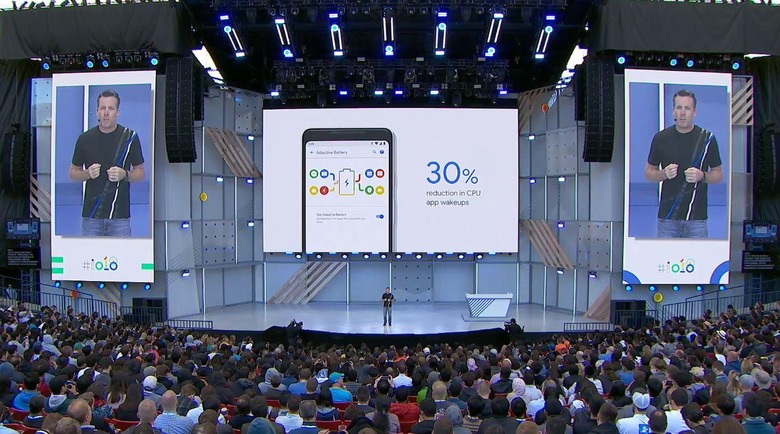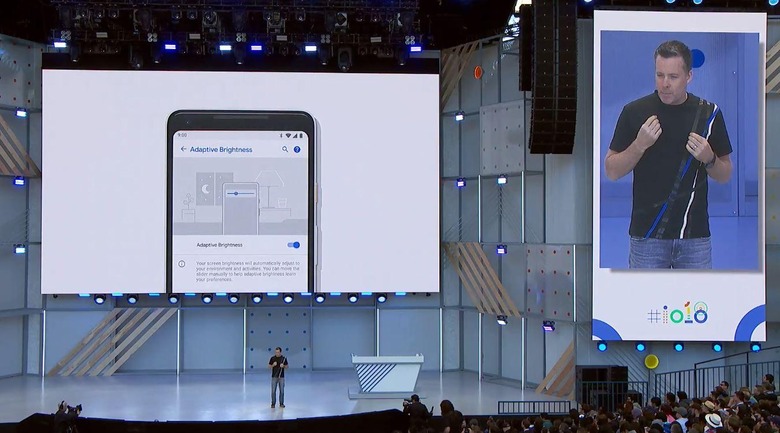Android P Spotlight: Adaptive Battery
Android P is almost certainly the biggest reason why many people are interested in today's Google I/O keynote, and it turns out the next version of Android will give a lot of focus to a common pain point for many Android users: battery life. Google will once again be leveraging its work in AI (we're noticing a trend this year) in a new Android P feature called Adaptive Battery.
While it might be tempting to scoff at such a name as just another set of buzzwords, there's actually something to this new feature, as it's based in Google DeepMind's technology. Essentially, Adaptive Battery will attempt to examine your app usage habits to give you more consistent battery life on a day-to-day basis.

As Google's Dave Burke explained it today, "Adaptive Battery uses on-device machine learning to figure out which apps you'll use in the next few hours and which you won't use until later, if at all today." The result is that Android will adapt to your individual usage patterns, devoting power to the apps you use frequently while preventing the apps you use more sparingly from eating up your resources and draining your precious battery.
Adaptive Battery seems to work, too, if Google's internal metrics are any indication. Burke says that with feature enabled, Google's tests saw a 30% reduction in CPU app wakeups in general, which translates to a longer-lasting battery. As Adaptive Battery uses machine learning to figure out your preferences, it stands to reason that it'll improve its battery-saving techniques as time goes on as well.

Going hand-in-hand with Adaptive Battery is a new feature called Adaptive Brightness, which aims to be a more accurate, machine-driven version of Auto Brightness as it currently exists on Android phones. Adaptive Brightness not only takes ambient lighting into account, but also your personal preferences when it comes to screen brightness in those lighting scenarios. Like Auto Brightness, this will change your display's brightness on the fly, potentially saving you more battery life over the course of your day.
In the end, these sound like great features, because no one is going to argue with more battery life. Sadly, we have to wait until Android P actually arrives to use them, but these just features are just two more things to look forward to in Google's next operating system.
